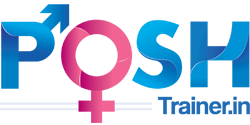Frequently asked questions(FAQ)
Is PoSH mandatory for every company?
Can men file cases under the PoSH Act?
No, the PoSH Act is not gender-neutral, only women can file complaints.
What kind of cases are not included in the PoSH Act?
The PoSH Act primarily deals with sexual harassment cases at the workplace, but it doesn’t cover cases outside the employment context.
What are the demerits of the PoSH Act?
While the PoSH Act is crucial for addressing workplace harassment, some challenges include potential misuse, lack of awareness, and varying implementation across organizations. One of the major demerits is that the act is not gender neutral. Only women can file compliant under the PoSH Act.
What is a false case under the PoSH Act 2013?
A false case refers to an unjustified or fabricated complaint filed under the PoSH Act with malicious intent, potentially harming the reputation of an individual.
What is the role of organizations under the PoSH Act 2013?
Organizations are responsible for implementing preventive measures, conducting awareness programs, setting up Internal Committees (ICs), and ensuring a safe workplace environment as per the PoSH Act.
What are the kinds of sexual harassment?
Sexual harassment can manifest as verbal, non-verbal, or physical conduct, including unwelcome advances, comments, gestures, requests for sexual favors, or any other unwarranted behavior creating a hostile work environment.
How does the PoSH Act define sexual harassment?
The PoSH Act defines sexual harassment as any unwelcome conduct of a sexual nature that interferes with work, creates an intimidating, hostile, or offensive work environment.
Are freelancers or contractors covered under the PoSH Act?
The PoSH Act primarily applies to employees and extends its provisions to cover freelancers or contractors within their policies.
What steps should an organization take to prevent sexual harassment?
Organizations should conduct regular awareness programs, establish a complaint mechanism, constitute Internal Committees (ICs), and ensure a zero-tolerance policy for sexual harassment.
Can an employee file a complaint directly with the local police under the PoSH Act?
No, the PoSH Act mandates the filing of complaints with the Internal Committee (IC) formed within the organization. If the IC fails to address the issue, the complaint can then be escalated to local authorities.
What happens if an organization fails to comply with the PoSH Act?
Non-compliance with the PoSH Act may result in penalties, fine (upto Rs 50,000/-) , or even cancellation of business licenses for the organization. It is essential for companies to adhere to the guidelines outlined in the Act.
How long does an organization have to resolve a complaint under the PoSH Act?
The PoSH Act recommends that complaints be resolved maximum within 90 days. However, the actual duration may vary based on the complexity of the case and the procedures followed by the Internal Committee (IC).
Can an employer be held personally liable for sexual harassment committed by an employee?
Yes, the PoSH Act holds employers vicariously liable for acts of sexual harassment committed by their employees, and employers can face legal consequences if they fail to address or prevent such incidents.
What support mechanisms are available for the victims of sexual harassment under the PoSH Act?
The PoSH Act emphasizes providing support to victims, including counseling, legal aid, and other necessary assistance. Organizations are required to establish a supportive framework for the affected individuals.
Does the PoSH Act cover incidents of sexual harassment outside the workplace?
The PoSH Act primarily focuses on workplace harassment, but it may extend to work-related events, conferences, or travel if they are linked to the employment context.
Can a third party or bystander file a complaint under the PoSH Act on behalf of the victim?
While the PoSH Act generally requires the victim to file a complaint, some organizations allow third-party complaints if the victim is unable to come forward due to fear or other constraints.
What role does the Internal Committee (IC) play in addressing complaints under the PoSH Act?
The IC is responsible for proving a safe working environment,receiving and addressing complaints, conducting investigations, recommending action, and ensuring a fair and unbiased resolution in accordance with the PoSH Act.
Are anonymous complaints accepted under the PoSH Act?
While the PoSH Act encourages complainants to disclose their identity for a thorough investigation, anonymous complaints are not accepted under PoSH Act 2013.
Can an employee be transferred or retaliated against for filing a complaint under the PoSH Act?
No, the PoSH Act strictly prohibits retaliation against complainants. Any adverse action taken against an employee for filing a complaint is considered a violation of the Act and may lead to additional consequences for the employer.
How often should organizations conduct awareness training on the PoSH Act?
The PoSH Act recommends regular awareness programs, and organizations typically conduct training sessions at least once a year to ensure employees are informed about their rights and responsibilities.
What measures can organizations take to create a safer work environment beyond legal compliance?
In addition to complying with the PoSH Act, organizations can promote a culture of respect, inclusion, and diversity, implement mentorship programs, and foster open communication to prevent and address issues proactively.
